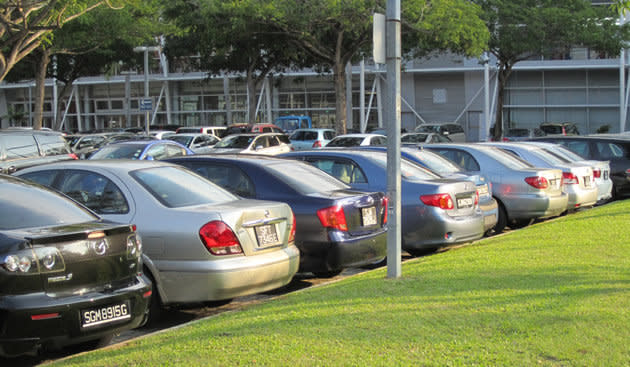Physically disabled, caregivers exempt from car loan restrictions: Tharman

The physically disabled and their caregivers will be exempt from some of the newly-introduced restrictions on car loans and purchases, said Deputy Prime Minister and Minister for Finance Tharman Shanmugaratnam.
Wrapping up the parliamentary debate on the Budget on Thursday, DPM Tharman said the maximum car loan of up to 60 per cent of the price of a vehicle will not apply to the physically disabled and their caregivers for one car.
Responding to feedback that the new loan limits imposed when he announced them last Monday would hurt those who truly need vehicles — such as families with young children, the elderly and disabled — Tharman said terms of the exemption will refer to criteria that apply in existing assistance schemes for the disabled.
He added, however, that the Monetary Authority of Singapore (MAS), which will be providing details of the exemption, cannot liberalise the new car ownership policies further at this point without weakening their intended impact of cooling car demand and soaring Certificate of Entitlement prices. These, he says, have shot up by between 40 and 60 per cent over the past two years alone, contributing significantly to inflation.
Tharman also added that the new loan curbs are not permanent, and will be reviewed later on, depending on how the car market develops.
Turning to used car dealers, DPM Tharman said the Land Transport Authority will allow them an extended temporary transfer period of one year — where it currently is nine months — so they will have more time to sell their cars without having to pay transfer fees.
“MAS will study how the depreciation of the value of the used car can be taken into account in determining the OMV (open market value) for the purpose of applying the appropriate tier within the new loan rules,” he added.
SMEs the focus of Budget 2013
DPM Tharman also emphasised that a large proportion of the measures in the Budget were designed with small and medium enterprises (SMEs) in mind.
Noting that over 60 per cent of the S$5.3 billion three-year transition support plans laid out by the government will go toward them, he said more measures will be announced by the Manpower ministry during its Committee of Supply debate to help SMEs attract and retain more Singaporean workers.
On calls for greater progressivity in the tax system, he responded that the government is not striving for progressivity or redistribution for its own sake.
What matters more, he said, is whether the system in place helps improve the lives of lower and middle-income Singaporeans — a question that does not have straightforward answers.
Further, said Tharman, the government’s aim to achieve quality growth is a social strategy beyond an economic one. He promised to do more for social spending in the areas of education and housing, for instance.
He added that the health ministry is working on a new healthcare financing framework that will benefit the middle-income, a group he says stands to gain also from the Wage Credit Scheme.
“We’re helping them (the middle class) in home ownership but the main way is to help them grow their incomes and keep taxes low,” he said.
Additional reporting by Nurul Azliah Aripin


